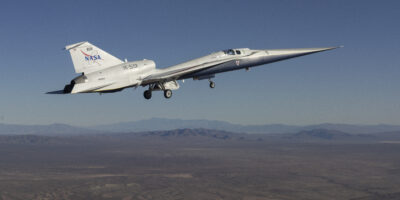Status: STILL FAMILY OWNED
Extreme Makeover: Home Edition special needs families have gotten complicated with all the follow-up stories flying around. As someone who’s researched the show’s most unique family situations, I learned everything there is to know about the O’Donnell family of Austin, Texas. Today, I will share it all with you — and fair warning, this one is unlike any other episode I’ve covered.
A Family Like No Other
Patrick and Jeanette O’Donnell have six children. Five of them were diagnosed with multiple forms of autism. I had to sit with that sentence for a while when I first came across it in my research, because the statistical odds are almost incomprehensible. In fact, national autism experts have not recorded a single other family in the United States with five autistic children. The O’Donnells aren’t just a family dealing with autism — they’re a medical anomaly that researchers still point to.
Among the five, Caitlin, who was 15 at the time of the episode, and Kiernan, who was 5, have the most severe form called classic autism. Both are expected to live with their family for their entire lives. That’s not a temporary caregiving situation — that’s a lifelong commitment that extends decades beyond what most parents plan for. You’re not just raising kids to adulthood. You’re providing care until you physically can’t anymore, and then figuring out who takes over after that.
Meaghan: The One Who Helps
Probably should have led with this section, honestly, because Meaghan’s story within this story hits differently.
The O’Donnells’ fourth child, Meaghan, shows no signs of autism. In any other family, she’d just be a regular kid going to school and hanging out with friends. In the O’Donnell household, she became a caregiver for her siblings. That’s a lot to put on a kid’s shoulders, and while I’m sure her parents never asked her to take on that role, the reality of living with five siblings who need constant attention means you step up whether anyone asks or not.
Thirty Days to Foreclosure
Here’s where the financial picture comes into focus, and it’s brutal. Patrick O’Donnell was working two jobs just to keep the family afloat. By day, he worked at a mail distribution center. By night, he umpired games. Two jobs, and it still wasn’t enough. The family was thirty days away from foreclosure, and hanging over everything was the terrifying possibility that if they lost their home, they might lose custody of their children to the state.
That’s what makes the O’Donnell story endearing to us who track these families — this wasn’t a case of poor financial planning or living beyond their means. This was a family with extraordinary medical expenses, five children requiring specialized care, and a father working himself into the ground trying to hold it all together. The system wasn’t designed for the O’Donnells, and it was about to swallow them whole.
The Build
Jimmy Jacobs Custom Homes took on the project and built a new home in North Austin designed specifically for the family’s needs. When you’re building for five children with varying degrees of autism, the design considerations go way beyond what a standard architect thinks about. Sensory-safe spaces, secure areas to prevent wandering (a serious safety concern with autistic children), durable materials that can withstand the daily reality of managing five different care scenarios — all of it had to be factored in.
Country music star Trace Adkins also showed up and performed at a benefit for the family, which brought additional financial support beyond the home itself. That kind of celebrity involvement wasn’t unusual for the show, but in this case, the O’Donnells needed every bit of help they could get.
Recognition and the Long Road
On October 3, 2011, Jeanette O’Donnell was named an “Autism Light” — a recognition given to exceptional autism mothers who go above and beyond in caring for their children. If anyone deserved that honor, it’s a woman raising five autistic children while staring down foreclosure and custody threats. I’ve covered a lot of Extreme Makeover parents, and Jeanette O’Donnell might be the toughest of all of them.
The home is still family owned, which given everything the O’Donnells have been through, feels like a small miracle. The ongoing care costs for five autistic children don’t shrink over time — if anything, they grow as the kids get older and their needs evolve. The fact that Patrick and Jeanette have held onto the house and kept their family together speaks to the kind of determination that most of us can only imagine.
If you ever find yourself complaining about your morning routine with two kids, think about the O’Donnells getting six children — five with autism — ready for their day. Every single morning. For years. That’s not a TV story. That’s a life.
Last verified: January 2026




Leave a Reply